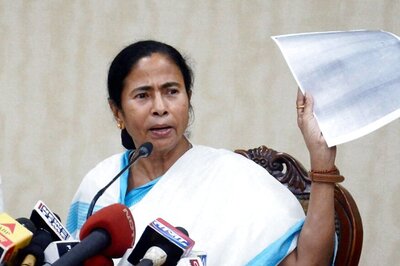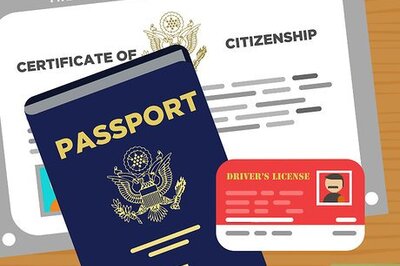
views
New Delhi: Public sector telecom firm BSNL has favoured regulator Telecom Regulatory Authority of India (TRAI) proposal to bring revenue sharing between visiting and terminating operators vis-à-vis global roaming calls.
BSNL said that giving 50 per cent share of roaming charges to terminating network would be a fair deal.
Responding to TRAI's consultation paper on revenue sharing, BSNL added, the regulator should prescribe the amount to be shared between the operators instead of letting them decide on their own.
In its view, BSNL said Rs 50 per call should be prescribed as the terminating operator's share in roaming calls, as visiting networks currently charge as high as Rs 100 per call.
"Since visiting Network Service Provider is treating the roaming subscriber differently from its own subscribers and charging much higher and it is not cost based, there should be revenue share between the visiting and terminating network service provider," the PSU said.
Currently, the mobile termination charges are 30 paise and TRAI was of the view that since the terminating operator does not have to incur any extra cost, there was no need to part with a higher share.
While in national roaming, the regulator has prescribed a ceiling of Rs 3 per minute, in international roaming there is no regulation, which has led to charges as high as Rs 100 a minute.
BSNL views, the share of revenue from roaming calls is based on the premium rate charge on such calls by the ‘visiting network operator’ and the ‘terminating operator’, which ends the calls.
PAGE_BREAK
Since the call cannot be completed without a terminating operator, hence the need for share of share from premium.
Operators say that split of revenues from roaming would be a retrograde move, as it would benefit only BSNL. Cellular operators fear that since BSNL has control over more than 50 per cent of the country's telecom subscriber base, the net outgo in the event of a revenue share would be in favour of the public sector company.
The PSU has asked TRAI to prescribe the amount to be paid by the visiting network operator to the terminating operator rather than leaving it to the mutual negotiation between them.
"Because of multiplicity of operators, likelihood of negotiations succeeding is quite remote, while leading to litigations (which) may affect the services to the customers", BSNL said.
TRAI may fix a share of Rs 50 for the terminating service providers as on an average a charge of Rs 100 per minute being is being levied for global roaming, it said.
"These rates may be monitored by TRAI and based on the average rate prevailing in the preceding year, TRAI may fix 50 per cent of that rate as share for the next years", BSNL said.
It said similar practice might be followed for national roaming. The average roaming charge is Rs 5 per minute levied by cellular operators, BSNL claimed.
BSNL has asked TRAI to fix an amount (like Rs 50 in case of international roaming charges), saying since operators may prescribe roaming charges differently for international roamers depending on the country, a revenue percentage share is not workable.




















Comments
0 comment